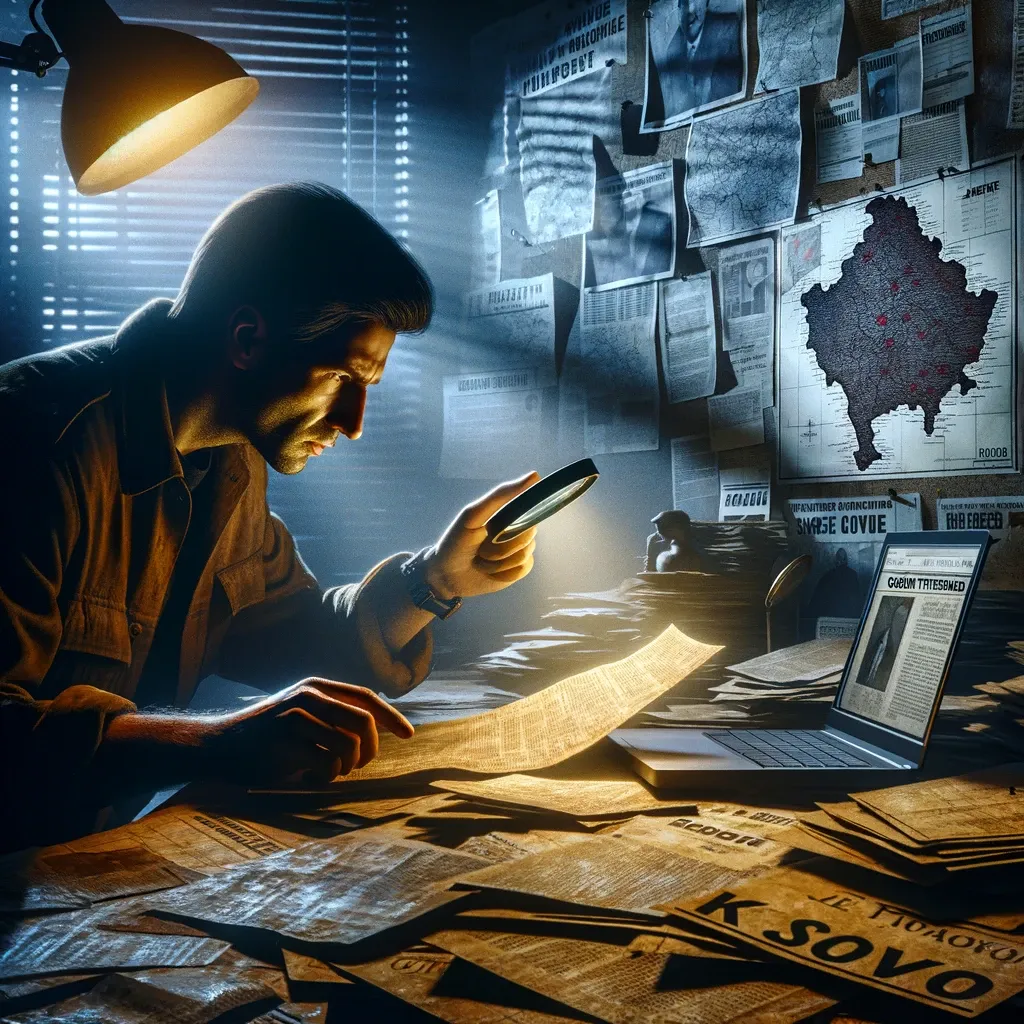End of the road for claims about Kosovo's organs?

Years later, rumors persist that Serbs were kidnapped and killed for the sale of their organs in the aftermath of the Kosovo war. However, three parallel international war crimes investigations by Serbian war crimes authorities, the European Union and the Council of Europe have found no evidence that the Kosovo Liberation Army (KLA) trafficked the organs of captives, according to sources close to each investigation.
According to the 2008 autobiography of former war crimes prosecutor at the Hague Tribunal Carle del Ponte, dozens of mostly Serb captives were allegedly taken to a "yellow house" near Burrel in central Albania between June 1999 and May 2000, where their organs were systematically removed and sold. However, the lack of both original sources and new evidence since 2004 may mean the story was unsubstantiated. The Council of Europe report, due to be published next month, is not expected to focus on the discovery of new facts, but rather on political demands on the governments involved in the case.
"The fact of the matter is that there is no evidence in this case."
- Matti Raatikainen, head of the war crimes section of the European Law and Justice Mission in Kosovo, said. "There are no bodies. There are no witnesses. All the reports and media attention on this issue are not helping us. In fact, they are not helping anyone." The main problem, he said, is that the scandal created by these allegations is distracting attention from the real work of finding the remains of the 1,861 people still missing from the war and its aftermath and bringing their killers to justice - in Serbia, Kosovo and Albania. We spoke in his makeshift office in a cluster of containers at the Alpha Bravo base near Pristina airport as the last storm of May raged through the roof. A few stout policemen came in and out, surprised that their boss was talking to a journalist. Mr. Raatikainen, a calm Finnish policeman, is known for his dislike of the media.
In 2009, a BBC special investigation found evidence of KLA detention camps in Albania, particularly in the northeastern Albanian town of Kuka. Earlier this month, Evleks made his first arrest in the case. It has also come to light that Albanians suspected of CUA infidelity were interrogated at a hotel in the Albanian coastal town of Durres and transported to Kuka. But constant disclosures in the Serbian press that new evidence or witnesses had emerged in connection with the organ trafficking allegations proved to be false or unconfirmed.
After the Kosovo war, American journalist Michael Montgomery met former KLA soldiers who said they had transported prisoners, both dead and alive, across the border from Kosovo to Albania. Three of his seven sources mentioned the possibility of organ trafficking and named a house near Burrel. But Montgomery was unsure and turned his research over to the Lost Persons and Forenzika Division (LPFD) at the UN Mission in Kosovo. The sources disappeared. In February 2004, a team of UN and International War Crimes Tribunal (IWCT) investigators, led by Matti Raatikainen, visited the house. A chemical spray used in a downstairs room revealed widespread traces of blood, of unknown origin, on the floor.
Given the lack of clear evidence, experts suggest that the Albanian government could help destroy the damaging story if only it would be more open. UN special rapporteur Philip Alston said in February that "on the side of the Albanian government, none of the investigative efforts have received capable cooperation." "To get rid of this problem," he urged Albania, "to offer an independent investigation and a willingness to really cooperate." Ending the "tale" of organ trafficking, as one prosecutor, Evleks, calls it, will still leave war criminals with plenty of work to do.
A mass burial mound was found this month near the southern Serbian town of Raška. Three truckloads of bodies - about 250 in all, presumably of Albanians killed by Serb forces in Kosovo - were reburied there in early June 1999. The red soil enveloping the bodies, witnesses say, indicates that the bodies were originally buried in Drenica in Kosovo and transported to Serbia to destroy evidence. Prosecutors believe it has been proven that the Serbian army was responsible. Excavations at the same site two years ago were inconclusive, it is now believed that the burial is under a parking lot and an office building. If an individual knows the whereabouts of the missing, retrieval has difficulties. "A lot of potential informants are gone," said Alan Robinson, joint chief of the OPLF. "Other people who may know the whereabouts of the missing may not be willing to talk out of fear or out of disinterest." Since 2001, 2,244 bodies have been identified in Kosovo. Of these, 301 were "non-Palbanian," meaning Serbs, Roma and others. 228 bodies are those of Serbs who disappeared after June 10, 1999, the end of the war, during the Kosovo Albanian revenge. In total, some 13,500 people are thought to have been killed during or immediately after the conflict. The results of Dick Marty's investigation by the Council of Europe into allegations of organ trafficking are due to be released at the end of June. Excavations in Raška will begin in August.
Comment
Popular Posts
Popular Offers

Subscribe to the newsletter from Hatamatata.com!
Subscribe to the newsletter from Hatamatata.com!
I agree to the processing of personal data and confidentiality rules of Hatamatata














